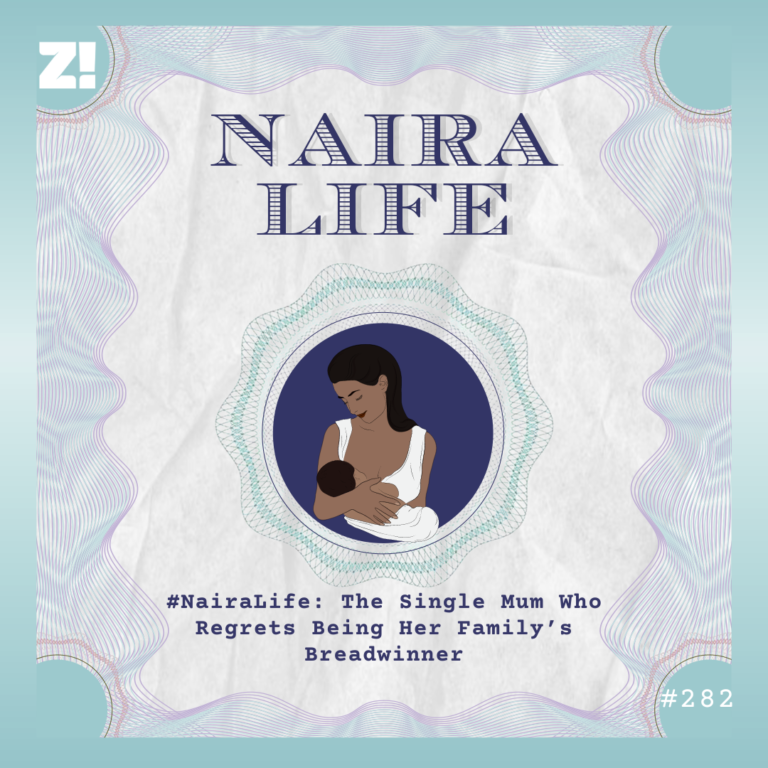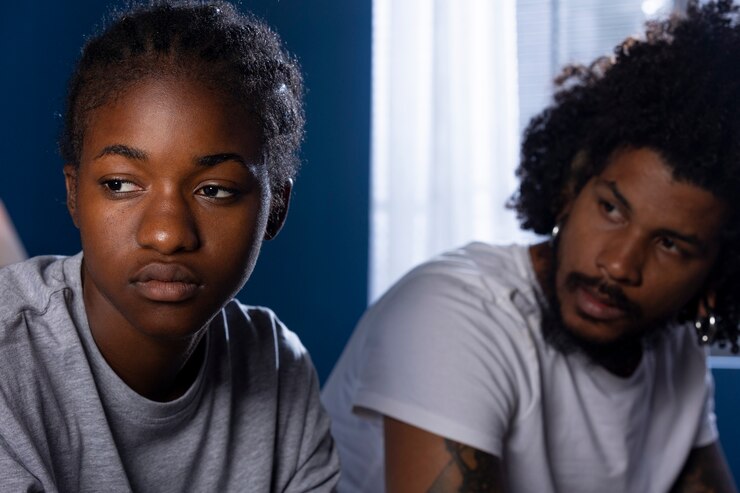I was looking to speak with people who’ve passed through the Igbo apprenticeship system when I got talking to my hairdresser, and this story happened.
Iyabo* wasn’t an Igbo apprentice, but she went through a slightly similar system. She talks about how her two-year training period extended to five years and why she had to leave Lagos to start her own hair salon properly.
As told to Boluwatife
Image designed by Freepik
A few years ago, someone asked me how I became a hairdresser. I said, “Na God o” and changed the subject because even me, I don’t know how I started this work. I like hairdressing o. I’ve been making people’s hair for 15 years, but I didn’t exactly decide it was what I wanted to do with my life.
I lost my dad at 12 years old, and as the last child from a polygamous home, that was the worst news ever. My mum was the favourite wife, so she didn’t have any handiwork because Alhaji (my dad) had money and took care of her. Of course, when he died, the three senior wives made sure my mum didn’t get anything.
I had to drop out of JSS 3 and live with a family friend because my mum couldn’t provide for me and my elder sister. My elder sister was in SS 3, and it made sense to allow her to finish.
After a year with the family friend, I was bundled to a hairdresser’s house to learn work in 2009. I was supposed to learn hairdressing from Mummy Deji for two years. Afterwards, I’d do my “freedom” and graduate from an apprentice to a professional hairdresser.
It’s probably old-school now, but hairdressing apprenticeship was normal in my time. A parent or guardian takes their child and pays a certain amount for them to learn under the hairdresser for a couple of years. The apprentice doesn’t receive a salary or any kind of payment during the learning period. After the learning period, the hairdresser throws a freedom party for the apprentice and gives them a certificate.
This certificate proves that the apprentice is now a professional and can open their own salon. I’m not sure how it works in other places, but that’s how most Yoruba people do it. You can’t just set up your own salon without a certificate proving you learnt the work from someone.
I started my apprenticeship with Mummy Deji when I was 13 years old. I wasn’t supposed to live with her, but my family friend’s house was far from her salon in Ikorodu. Everyone thought it was best if I lived with her so I could get to the salon early and save transport money.
It’s normal for hairdressing apprentices to become errand girls for their madam. You’ll sweep the salon, draw attachment, buy them food and even go and pick up their children from school. My own was worse because I was living with my madam, so I became like her housegirl.
I’d wake up at 5 a.m. to bathe her son, Deji — who was five years old at the time — and prepare him for school. Then, I’d sweep the whole house, wash plates and open the salon at around 8 a.m. The salon was right in front of her house, so we sometimes worked till 10 p.m.
It took about a year before I could plait hair in a single line. I never really had time to learn because I was always doing something else for Mummy Deji. After I opened the salon, I’d mop and fetch the water we’d use to wash the customers’ hair. Then I’d either cook breakfast on the stove she kept in the salon or stand and watch her as she plaited someone’s hair.
In the afternoon, I’d pick Deji from school and keep him entertained in the salon while doing other chores or take him with me if I was sent on an errand. The little hairdressing I learnt was by watching Mummy Deji, not because she allowed me to practise on anyone.
By the end of the two years, the only things I could do was put relaxer on people’s hair and plait all-back. When my family friend asked Mummy Deji about my freedom, she made it sound like I was lazy and wasn’t a fast learner.
I stayed with Mummy Deji for five years, and I was just like a slave. I did everything for her and couldn’t even go out I’d wash clothes, go to the market for her and take care of her children. By the fourth year, I was the only one going to the salon. I’d become better at hairdressing by watching her, and when she noticed that, she left me to do people’s hair on my own.
I remember the first time I fixed a weave-on. I didn’t know how to sew the closure, but I thought I could just wing it. I fixed rubbish, and the woman demanded I buy another weave-on for her because I’d spoiled her own. Mummy Deji had to beg her, but I paid for my mistake by chopping heavy slaps.
RELATED: The Secret Life Of A Nigerian Hairdresser
That’s another thing. Mummy Deji used to beat me a lot. If her child cried too much, one slap. If I didn’t wake up early, another slap. She reduced the beating when I turned 18 years old. Maybe it was because I’d grown taller than her, and she was scared that I’d beat my own back. But she also stopped shouting at me anyhow.
In 2014, I approached Mummy Deji and asked her when I’d do my freedom. I already knew how to do hair, and five years was enough time to be under her. She claimed she didn’t have money to organise a party for me and that I should wait. By then, I’d already decided I couldn’t stay with her again.
I told my mum and family friend that I’d leave in six months if she didn’t give me my certificate. They spoke to Mummy Deji, and she promised to set me free before then. You won’t believe this woman hosted two parties within that time, and when six months came, she started telling me story.
The whole thing led to a big disagreement, and I left her place to stay with my elder sister after she asked me to “do my worst”. But that wasn’t the end of my story with Mummy Deji.
My sister lived in the Ojo area of Lagos, which is quite far from Ikorodu. I thought I could start making hair for people without wahala from her about how I’m still an apprentice. And that’s what I did.
From 2014 to 2017, I made people’s hair at my sister’s house without any issues. But when I rented a shop in 2018, people from the hairdressers association started disturbing me about my certificate. I’m still not sure if they were supposed to do that, but I later learnt that Mummy Deji was friends with some of the executives and had somehow found out that I’d opened a shop. So, she sent them to frustrate me.
I had to do home service until I married and left Lagos in 2022. I’m in Ekiti now with my own salon my husband rented for me, and I haven’t had any issues since. I pray it continues like this. I never want to see Mummy Deji again.
*Names have been changed for anonymity.
NEXT READ: I’ll Never Date Someone Who Earns Less Than Me Again

Get your tickets here for a day of fun, networking and partayyyyy




